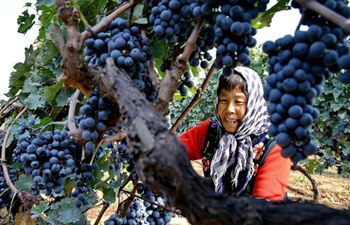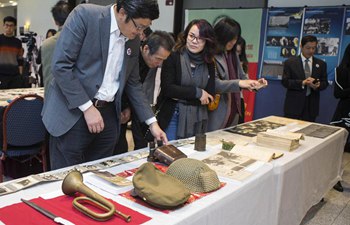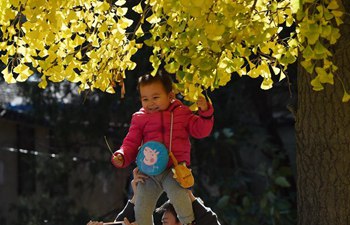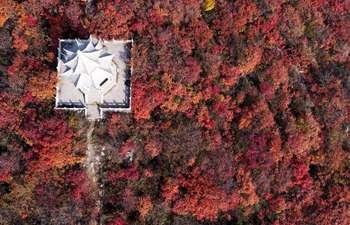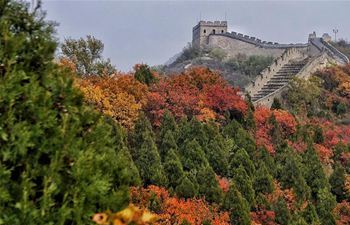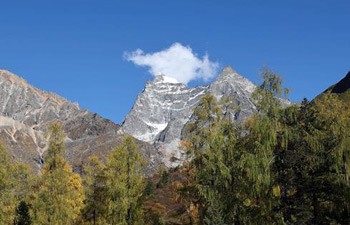by Abdul Haleem, Rahman Safi
JALALABAD, Afghanistan, Oct. 30 (Xinhua) -- Extracting pine nuts from pinecones in Kanda Chashma village outside Nangarhar's provincial capital Jalalabad city, a working lady whispered that Jalghoza (pine nuts) is a lucrative natural source of income for people living in eastern region of Afghanistan.
Attired in villagers' dress and wearing a black scarf, the lady who refused to reveal her name as a sign of respecting traditions said softly that she can earn about 300 afghani (4.41 U.S. dollars) daily to support her family.
In patriarchal Afghanistan especially in rural areas where people deeply believe in old traditions, women often reject to disclose their name or talk with men face to face.
"My duty here is to take out pine nuts from pinecones and usually I work four, five, or even six hours every day," she murmured.
Described by locals as a natural treasure, the pine nuts trees, growing naturally in Afghanistan's eastern provinces of Nangarhar, Laghman, Nuristan, Kunar, Paktia, Khost and Paktika provinces, have been strictly protected by Afghan villagers.
Afghan pine nut, which is an expensive dry fruit, is popular in Pakistan, India and other countries in the region.
The price of 1 kg pine nuts in local market nowadays is 2,000 afghani (29.41 U.S. dollars) which is beyond purchase power of ordinary people in the conflict-battered Afghanistan.
However, local traders say that the price would double and triple if Afghan pine nuts are exported to other countries.
Collecting Jalghoza or pine nuts in traditional way by hands, according to locals, is difficult and time wasting.
"We can increase our products if the government helps us to change the way of processing from traditional hand collecting to machine collecting and to modernize our packing system," local trader Rasoul Khan told Xinhua recently.
Afghanistan, according to Khan, produces 30,000 tons of Jalghoza or pine nuts annually and the amount could increase if the government encourages investment in this field.
In the past, Afghan pine nuts, according to Khan, were exported largely to Pakistan but the expensive seed is currently exported to scores of countries and soon 10 tons of Jalgoza or pine nuts would be exported to China and Thailand.
"Modernizing processing and packing of pine nuts would provide more job opportunities for people," a resident of Kanda Chashma village Hamisha Gul, 35, told Xinhua happily at the site of his work. Enditem





